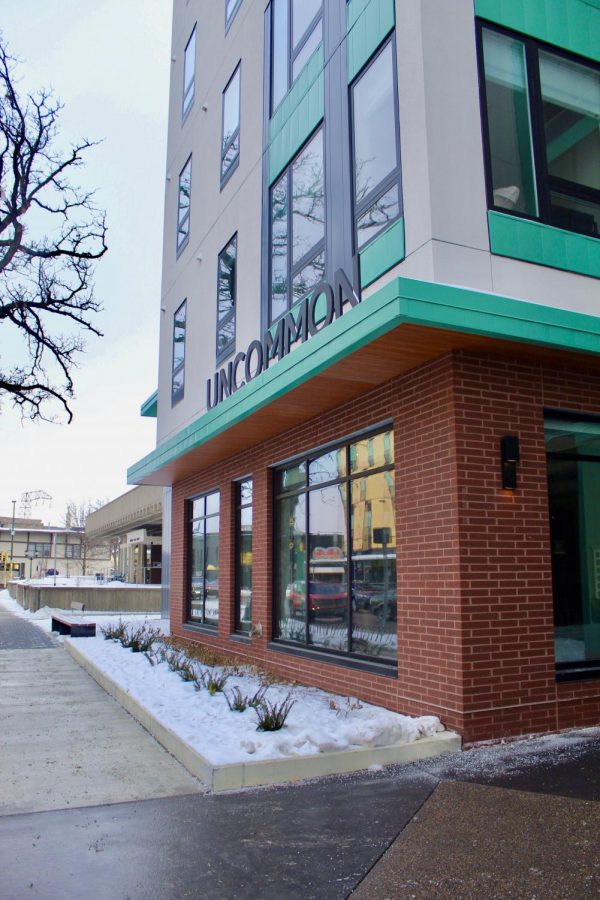Minneapolis City Council members and community leaders are looking to advance a rent stabilization proposal that would cap the annual rent increase so landlords cannot dramatically increase costs.
Council members have not determined the percentage increase limit, but the typical amount for other cities with the ordinance ranges from 3% to 10%. The proposal could end up on the ballot this November.
The ordinance will go through a public hearing around the end of the month, and the University’s Center for Urban and Regional Affairs (CURA) will present research on rent stabilization ordinances in other cities to help inform council members.
Minnesota has a law that states cities require voter approval to enforce rent control. So, officials are looking to pass the ordinance either through a charter amendment or a city council process that is then voted on by the public, said Ward 2 City Council member Cam Gordon, who is leading the proposal.
More than half of all renters in University-area neighborhoods are considered “cost-burdened,” according to 2015-2019 data from Minnesota Compass. A cost-burdened household pays more than a third of their income toward rent and may have difficulty affording necessities like food or medical care.
Ryan Allen, director of the Urban and Regional Planning program at the University’s Humphrey School of Public Affairs, said he has seen rents in large metropolitan areas increasing much more quickly than household incomes in recent decades. He said that rent stabilization could be a tool to help bridge this gap.
“The research on the effects of rent stabilization or rent control policies indicates very, very clearly that for housing units that are affected by the stabilization. … the rents go up at a slower rate than they ordinarily would have,” Allen said.
In some cities with rent control ordinances, Allen said newly constructed residences are exempt from this rule so developers are not discouraged from building.
For renters, this ordinance is an opportunity to plan ahead and avoid any expensive surprises waiting for them at the end of the month.
Rodriguez, a renter with Inquilinxs Unidxs Por Justicia — one of the organizations promoting the ordinance — said recent rent increases have put a strain on her family. Rodriguez declined to give her first name for fear of retribution from her landlord.
She said each time her landlord raised her rent, tenants were given about 15 days notice before they had to pay. Her husband is the only one in the household who works, making it difficult to accommodate the unexpected extra rent within their monthly budget.
“How are we supposed to be able to pay these high rents, plus the rent increases, when we’re not making any more money?” she told the Minnesota Daily in Spanish, relayed through a translator with Inquilinxs Unidxs Por Justicia. “It’s not paying us enough to be able to pay these rent increases in the first place.”
Rodriguez said her rent started at $775 a month, and the landlord increased it to $850, then $950, all within about a year — about a 23% increase in a short period of time. She said this was especially difficult to pay in the middle of the pandemic.
“It’s really heartbreaking that we’re in this position of having to choose between paying rent and being able to feed our families,” Rodriguez said. “And oftentimes both parents are forced into working sometimes even multiple jobs, and then childcare is not very accessible either.”
Conversely, some believe the ordinance would have negative consequences in the long run for landlords and tenants, said Mike Jacka, president of Minnesota Real Estate Investors Association.
He said property conditions would deteriorate because there would be less incentive for the landlord to fix the property.
“If there’s no financial incentive for the landlord to increase the value of the property, aka by getting a higher rent from a tenant who’s willing to pay more to get a nicer property, then what’s the incentive?” Jacka said.




















Dorilus Morrison
Feb 22, 2021 at 4:42 pm
It sounds like Mike Jacka believes that all landlords are profit-driven extractors who would never fix the properties they own if they don’t have the future option to jack up rents and displace the current people living there. To me that’s evidence that they need more regulation!